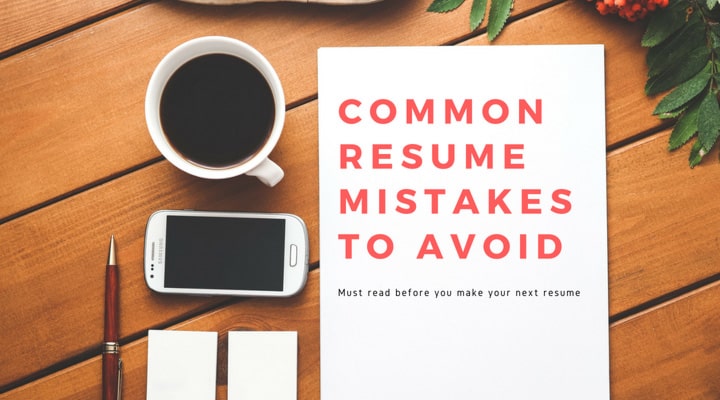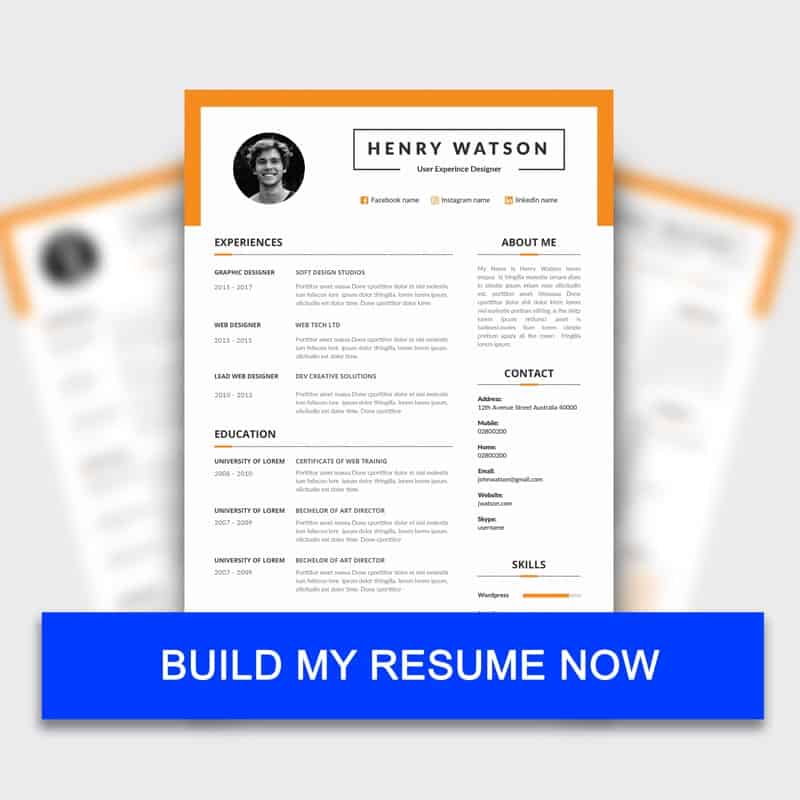Let’s face it! Resumes are a necessary evil in the job search process. It’s an important part of the process. To get started think of your resume as your advertisement that will represent you in front of the employer. Now, you should arrange it in a such a way that it reflects you as best as possible. Still, there are many common mistakes done by people which gives the employer a good chance to toss it aside.
Following are some most common resume mistakes which you can easily avoid to make your resume stand out.
Misspellings and Grammatical Errors :
Make sure you review your spellings for grammar mistakes or any typos. Catching your own errors is hard. Try printing your resume out, changing the font, reading aloud or copying it into a blank email. These strategies help you see your words with fresh eyes, which can help with catching errors. Or you can even have your resume proofread by any friend, relative if possible.
Using Improper Email :
Most of the people overlook this essential part of your resume, your email. Your email address should be more appropriate and professional. It should include your first name and last name. Also, make sure it doesn’t contain irrelevant words in it.
Lying :
Never lie about anything in your resume. Lying about work history, education etc. can have serious consequences, as employers do conduct background checks. Even after you are hired then also you can get terminated if the employer finds out you weren’t honest.
Not Including Keywords matching Job Position :
Your resume should include keywords that are in a job listing. Not to mention if your resume doesn’t contain right keywords your resume is most likely not to be noticed as you won’t appear to be a strong fit for the job.
Relying on a “one resume fits all” approach :
Too often, job seekers make the mistake of relying on one resume to speak to every position they will eventually apply to. Make sure your education, skills etc. are relevant for the post you are applying for. Moreover, tailoring your resume illustrates to hiring managers how your professional experience aligns directly with the needs of the role you’re applying to, which may increase your odds of getting an invite for an interview.
Demanding attitude :
Mentioning your salary requirement, benefits, or specific perks, such as paid vacations or paid time off on your resume makes it’s unprofessional and can even make you come across as obnoxious and presumptuous.
Trying to be Flashy :
Never try to be flashy or use too many big words. As to employers, it may look like you’re trying too hard, and come across as pretending to be someone you’re not. Hiring managers look for candidates who can communicate clearly and concisely. Make sure you write short but compelling sentences.
Longer Resume :
Try to keep your resume to one page especially if you are a student or new job seeker. Be selective about the type of experience and skills you add to your resume. Try to focus on highlights. Limit your resume to the last 10 to 15 years of work experience. You don’t need to include everything you ever did. But do share any awards or recognition you have received in a matter-of-fact manner i.e. “Promoted to associate director after increasing annual donations by 25%” or “Received team player award at three annual company-wide awards ceremonies.” While you don’t want to seem boastful, your resume is the appropriate place to share accomplishments.
Irrelevant Information :
It can be tempting to find other ways to sell yourself in the hope of standing out. However, beefing up your resume with irrelevant information that doesn’t pertain to the job you’re applying to, may only hurt your chances. For example, listing current hobbies or courses which aren’t related to job etc. will only distract the manager. As a general rule of thumb, save certain personal and professional antidotes for a face-to-face interview.
Bad Formatting:
Most resumes can only be accepted in certain computer program formats, like a word document or text document, or a PDF. Not only is it important to ensure that you’re using the right type of document when creating and sending your resume, but you also need to make sure that your resume gets delivered in the correct formatting, too. Nothing is more distracting and off-putting to a hiring manager than trying to read disjointed, cut-off job descriptions and dates in a poorly formatted resume. Use formatting techniques like bullets and short paragraphs to enhance readability and try to keep it simple.
These mistakes can cause even the most impressive resume to get cut from the short list of candidates hiring managers are interested in. To avoid ruining your own chances of getting the job, be sure to check carefully to exclude these errors from your application materials. Or try this great resume builder to a make a killer resume

